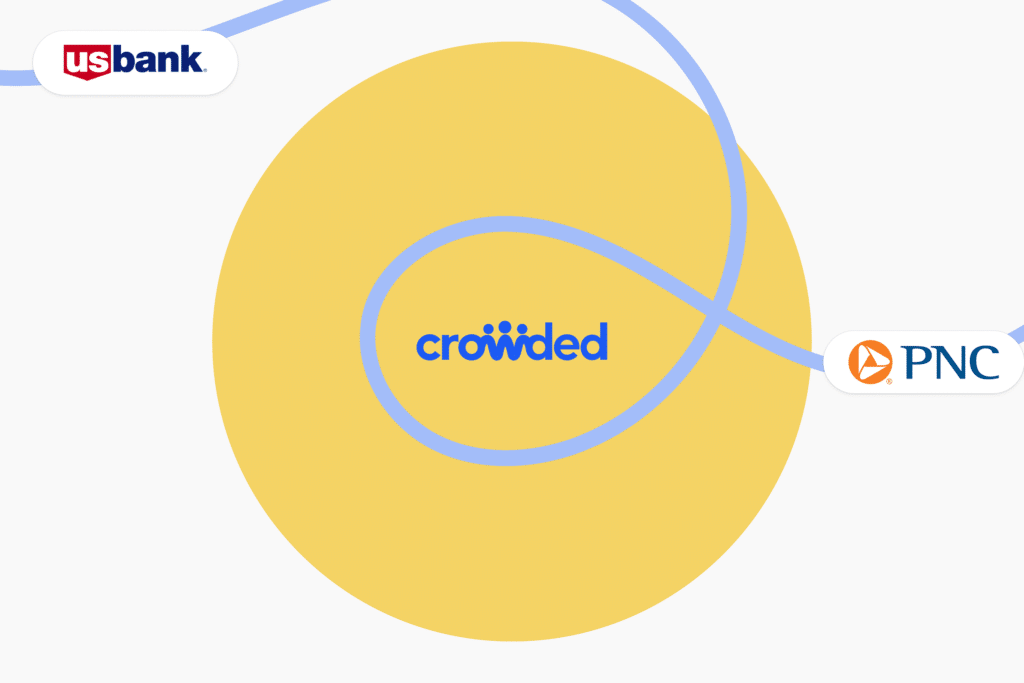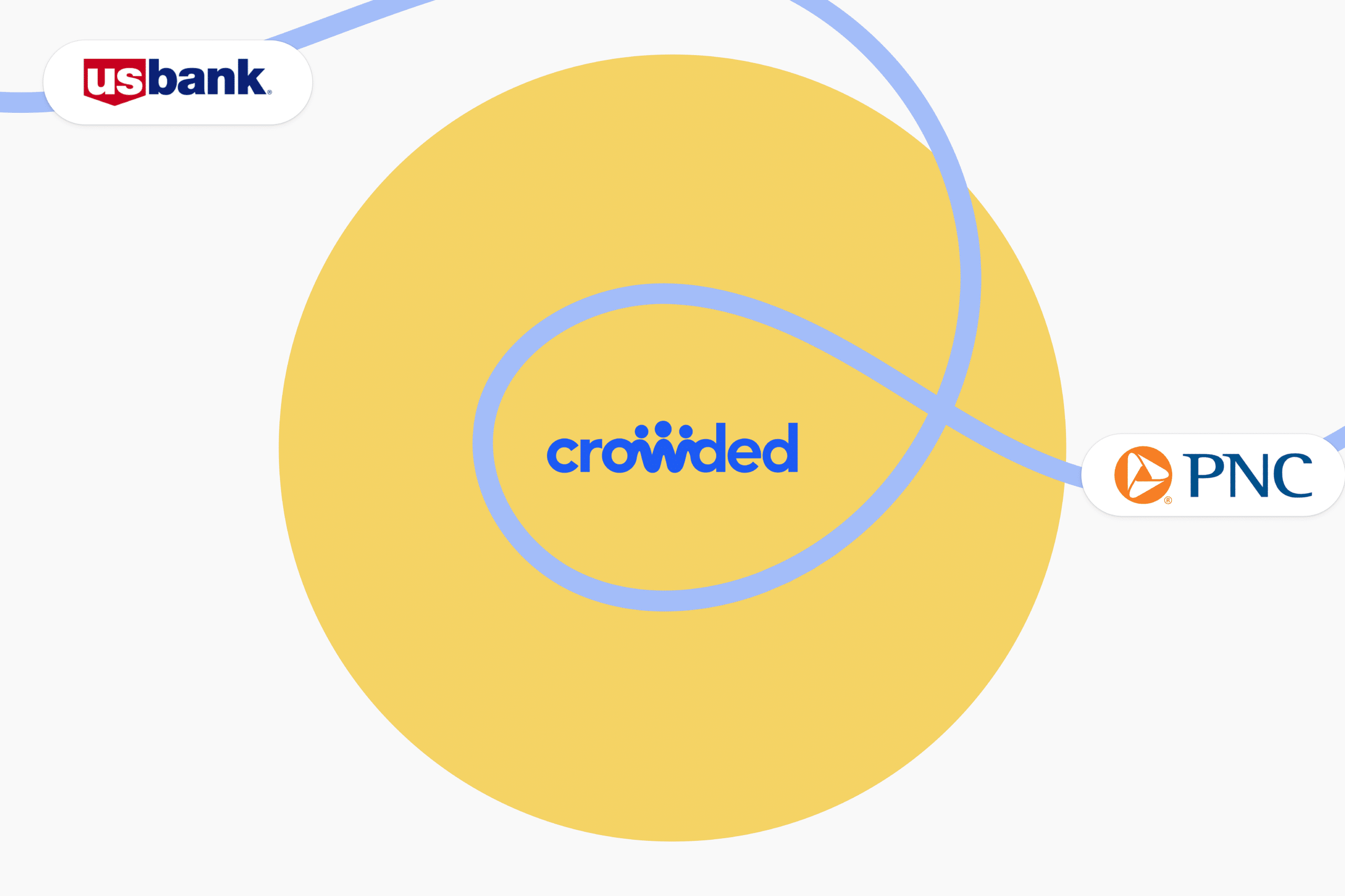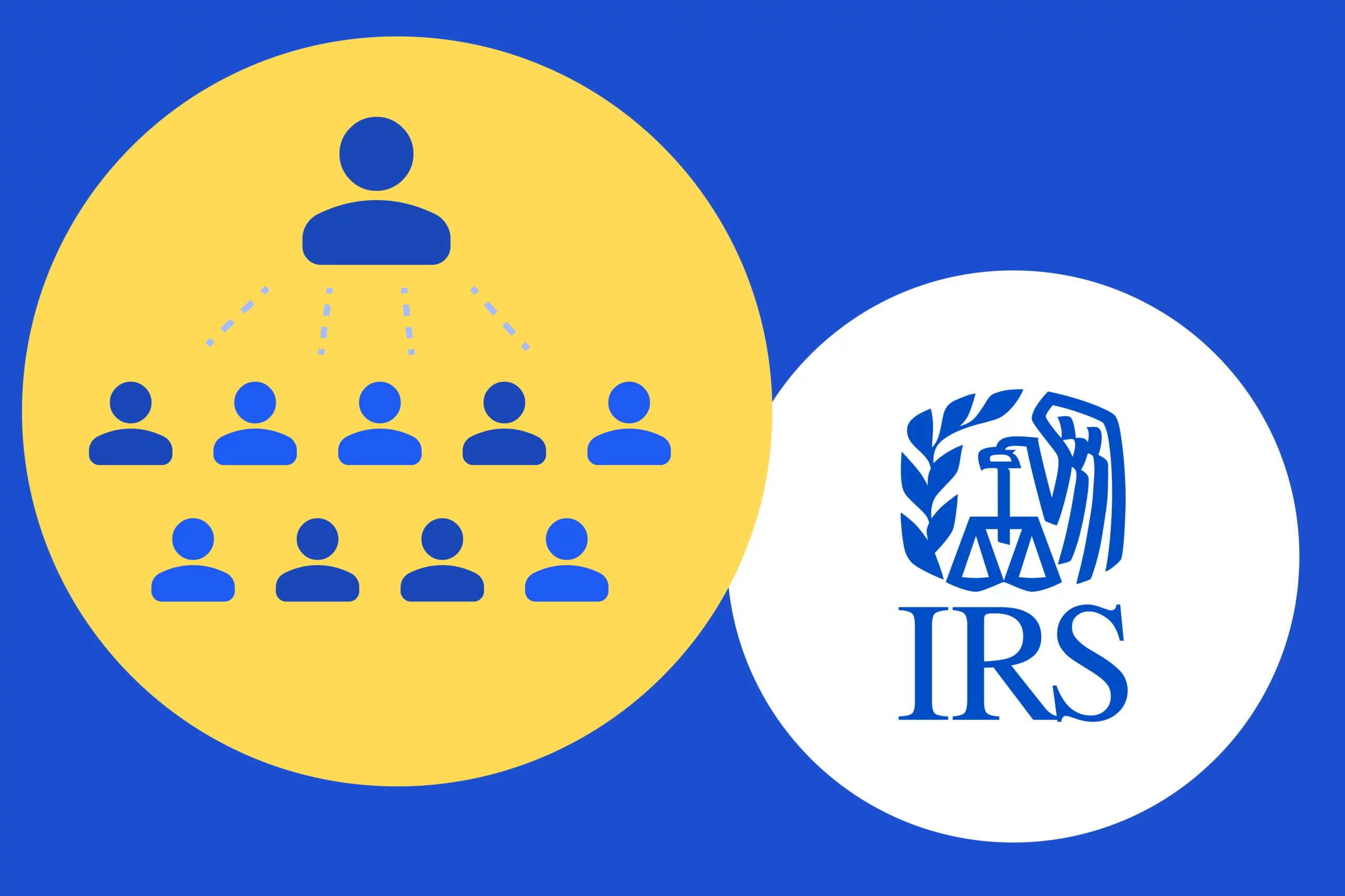Choosing the best bank for your nonprofit sets up your nonprofit for long term success. Banks that are specifically geared towards nonprofits, or have a nonprofit offering will fit your organization’s needs better than a regular bank account. Your specific needs around transactions, reporting, fundraising, receipts will be better understood by these banks.
Don’t worry, we’ve made it easy for you to evaluate the different options on the market, just keep reading.
The different types of banks for nonprofit groups
Digital bank
Digital banking apps are great for convenience. Account setup and maintenance is all done online, and generally without needing to talk to a representative. These banks will not, by definition, have brick and mortar locations or their own ATMs. On the other hand, they are the most savvy and growth oriented, you can count on a constant stream of new features.
Tip: Crowded is a digital bank* tailored specifically to nonprofit organizations, with specific features for multichapter nonprofits, online payment collection, unlimited digital debit cards and embedded fundraising.
Commercial banks
Commercial banks are known for their various amenities and resources they offer. They can offer online banking services, checking and savings accounts, basic investment services, loans, and more. These banks operate branches and ATMs probably in your area as they have a wide footprint. Some even offer specific nonprofit oriented accounts.
Tip: Customer service quality varies with these big banks, check what the reputation of the bank is for support wait times, and how helpful they are.
Local banks
While local banks may not have the same vast resources and features as larger chains, they often have a stronger connection to the local community and better customer service. If a local bank seems like the right fit for your nonprofit, check that it has all the resources and features your organization needs.
Credit unions
Credit unions are local institutions owned by their members. They offer personalized customer service, focusing on the local community and lowering fees and loan rates. Some larger national credit unions have local branches or credit unions that only work with certain affiliations, such as the military or educational institutions. Their product and service offerings will not be as robust as those of a bank. To bank with a credit union, you must qualify as a member.
Bank selection checklist: how to choose a bank for your nonprofit
Experience working with nonprofits
A bank with experience working with nonprofit organizations, or with a specific nonprofit banking product, will be better suited to answer your questions and serve your needs. They may have specialized features for nonprofits and a familiarity with your work. Choosing a bank with a nonprofit specialty will be more efficient and less frustrating.
Low fees
Because there are so many banking options on the market, why not choose a bank with low fees? Fees can come in all shapes and sizes, from monthly fees, transaction fees to account opening fees. Be sure to investigate any hidden fees before choosing a provider.
Choose a bank that is transparent about its fees and compare the fees from different banks to see how they differ. An extra fee may be worth it if it provides specific features that could benefit your nonprofit.
Ability to meet your group’s needs
Consider your group’s availability. Do you need a bank where you can do everything online, and not within business hours? If so, consider a digital bank where everything is available online. If your treasurer is available during business hours and wants a personal connection, consider using a local bank or credit union.
Crowded | U.S. Bank Nonprofit Business Checking | PNC Non-Profit Checking | Truist Community Checking | Everbank Non-profit checking | |
|---|---|---|---|---|---|
Monthly Fee | $5 | $14.95 | |||
Minimum Balance | $100 | $100 minimum opening deposit | $100 minimum opening deposit | $1,500 minimum opening deposit | |
Multi-chapter nonprofit
features
| Can list the parent organization on a chapter account. | ||||
Digital Account set-up | |||||
Digital officer handovers | |||||
APY | .005% | Up to 2.35% | |||
Free transactions | Unlimited | 150 per month | 150 per month | 225 per month | Unlimited |
Crowded is a dedicated banking* platform for nonprofit groups
We designed Crowded to give nonprofit groups access to modern banking* tools that make spending, collecting, and managing nonprofit money easier and less time-consuming. Because of this, we are constantly adding new features that make money management a more convenient and stress-free experience for group leaders and treasurers. In addition to our digital banking* and financial management tools, Crowded offers quick online account handovers and reporting features that help treasurers track all the information they need for tax-exempt forms in minutes.











